
Characters are critical for stories that resonate. Why? Because characters are the conduit that connects the reader, that vests them in the events.
We can’t empathize with technology, spaceships, magic, or nuclear submarines. Humans can’t bond emotionally to a place (without the characters as the connection).
For instance, we CARE about Lord of the Rings’ Middle Earth because we care about Frodo, Samwise and Gandalf. And, because Frodo, Samwise and Gandalf care deeply for Middle Earth and the Shire…we do as well.
Story is like the wall socket that’s connected a tremendous power source. But, how useful would those wall sockets be if all the gadgets in everyday life didn’t have plugs? How useful would a bunch of dead gadgets be?
We cannot have story without characters and can’t, conversely, have characters (DIMENSIONAL characters) without story.
Readers read stories, but great stories read the readers 😉 .
Great Characters are What They DO
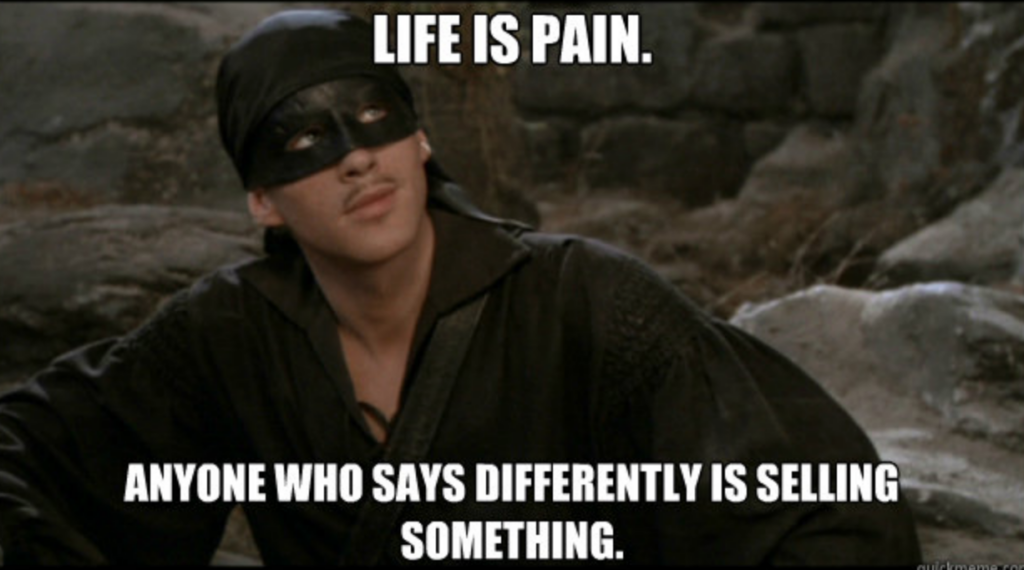
One of my mantras in life and in fiction is, ‘Talk is cheap.’ Probably the single largest mistake I see in newbie fiction is the writer insists on telling us a character is this or that instead of showing the character being this or that (then allowing us to be the judge).
Now, I do understand that we cannot write a book that is all showing. We do need some telling lest the book be a half million words long and unreadable. As authors, however, we are wise to hold back a little. Use restraint.
Let the audience do some of the work 😉 .
This allows readers to join in the experience, and metaphorically ‘complete the circuit.’
Remember, readers bond to characters via their own baggage and their own worldview. Well-written stories are a different experience for every reader, because we (humans) see the characters through infinitely varied lenses.
Ideally, audiences should see our characters through themselves.

This is how we can have a series like Game of Thrones (or A Song of Ice and Fire if we’re talking about the books) and fans have vastly different opinions about the characters.
Some fans LOVED Daenerys Targaryen. I couldn’t stand her. I actually liked Cersei Lannister, even though plenty of folks hated her.
Suffice to say that, whether it’s Harry Potter, Star Wars, Firefly, Battlestar Galactica, Friends, Marvel, DC, or Big Bang Theory, success can be largely attributed to fan-devotion to favorite characters.
How can characters hold so much power?
If we (the writer) assign moral judgement and TELL an audience this character is good and this one bad and this one a liar and this one a hero, we close that emotional expanse where imagination and empathy lead to bonding.
Half the POWER the characters wield is their baggage, the other half being the READER’S baggage.
We’re wise to leave room in the story for the audience to park their overpacked emotional U-Hauls.
Readers Imbue Emotional Energy

If we can learn to write characters in a way that they act out of their own wants, desires, wounds, blindspots, and shame, then we open the seam between fiction and reality.
Widen this seam enough, and the audience can fall into our story and become part of our world.
Great characters should have baggage, the more the better. They should also be acting out of this baggage. And, if we (Author God) will refrain from assigning any value judgement (telling) the characters will, as a result, become more complex.
Right now maybe you’re all saying, ‘Great, Kristen! Um, huh?’
When WE (the author) assign a value judgement, we are doing this based off OUR experiences, psychological makeups, wounds, etc. This limits how much the reader can participate by forming their own opinions.
If, however, we can practice restraint, the READERS will formulate their own assessments based off their wholly unique and infinitely varied experiences. In fact, that is a HUGE part of the fun.
It’s why we (fans) take The Sorting Hat Quiz over at Pottermore, or Facebook quizzes to tell us which Avenger we are or which character from Firefly we resemble most.
Back to Game of Thrones, though. Why did I ‘like’ Cersei Lannister despite her being a fairly horrible person?
Because of MY background.
‘Noble’ Qualities’
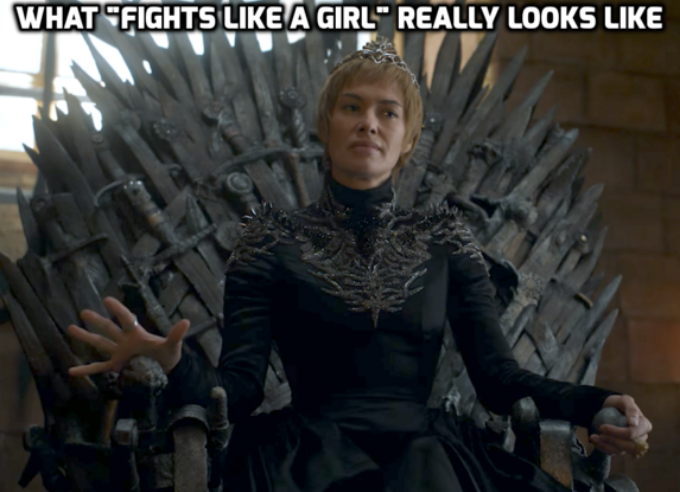
How audiences loved to hate Cersei. Yet, why did she resonate for me? Why did her character strike such a visceral chord? What made her dimensional and real instead of a paper doll/mustache-twirling caricature?
First, she possessed what I BELIEVED to be noble qualities. Cersei LOVED her family (her brother perhaps a bit too much for my comfort, but whatever).
I’ve always been deeply dedicated to family. Also, as a mother, I understood her motivations. She would do anything for her children. She’d stop at nothing to assist, promote, protect or even AVENGE them.
Literally.
She was fiercely devoted to her children (even a child as terrifying as Joffrey) and heaven help anyone who messed with her cubs. She’d melt you with wildfire…then drop a city on you.
For reals. She did it.
*Cersei drops mic then half of Westeros*

As a mom, I fully appreciate how vulnerable our children can make us. How blinded we can be to the faults of our kids.
Also, Cercei’s personality is a lot like mine. I don’t do anything in half-measures and neither did Cersei Lannister.
She Had a Sympathetic Viewpoint
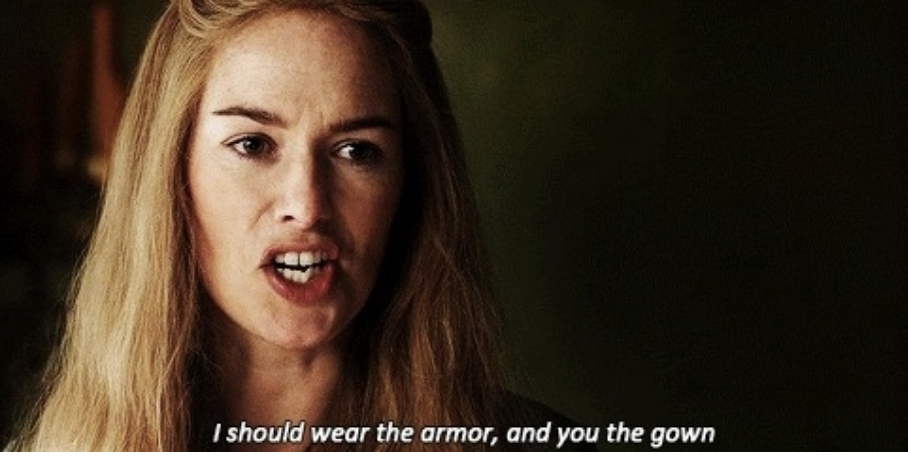
Because of MY background, I felt Cersie possessed a highly sympathetic viewpoint. She was a woman in a man’s world, overlooked even in her own family.
Of all the Lannister children, SHE was the only one who paid attention, and who outpaced her brothers by a million miles regarding Rule with an Iron Fist/On an Iron Throne 101.
SHE was the Lannister most qualified to rule, but instead, her father handed her off like chattel to marry a fat, sloppy, philandering joke of a leader, King Robert Baratheon who openly disrespected her.
And it was that pervasive powerlessness—generated by the world she had no choice being born into—that pissed her off more than a little (and rightfully so).
I understood her frustrations.
Her one brother, Jaime, had more interest in prancing around the country playing ’emotionally wounded knight’ than protecting the realms, and the other brother, Tyrion–in the beginning at least–was a drunken, hard-partying cad who cared only about himself.
Men more ‘qualified’ to rule from the Iron Throne surrounded her—and by ‘more qualified’ I mean they had man parts.
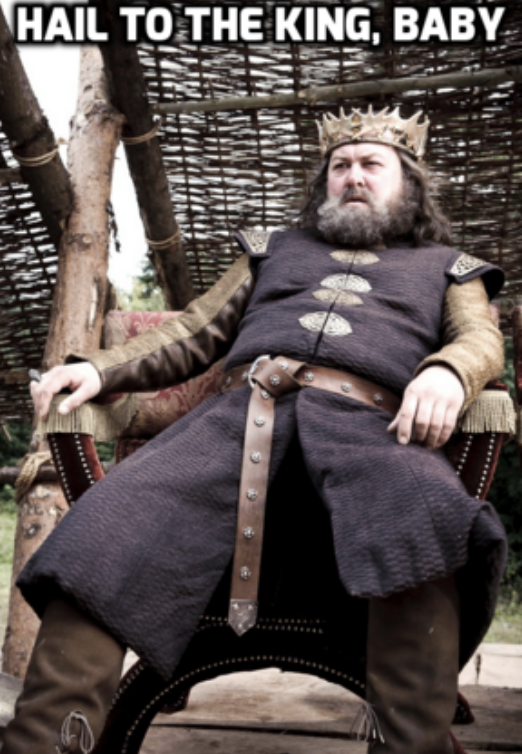
The lion’s share of Cersei’s insane desire to gain the throne for one of her sons could be largely attributed to the fact that she believed she could rule vicariously through her sons who had the requisite ‘man parts.’
She believed that, if she could secure the Iron Throne, she could maintain the security they’d fought so hard and lost so much to win in the wars against The Mad King.
Of course after Season Six she was there to blow $#!& up and was all out of children. She made the High Sparrow into a smoking crater glowing hotter than a Chernobyl Ferris Wheel.
And that ‘Rule by Man Part Mandate’? She melted that, too…
A Character to Act Out MY Feelings
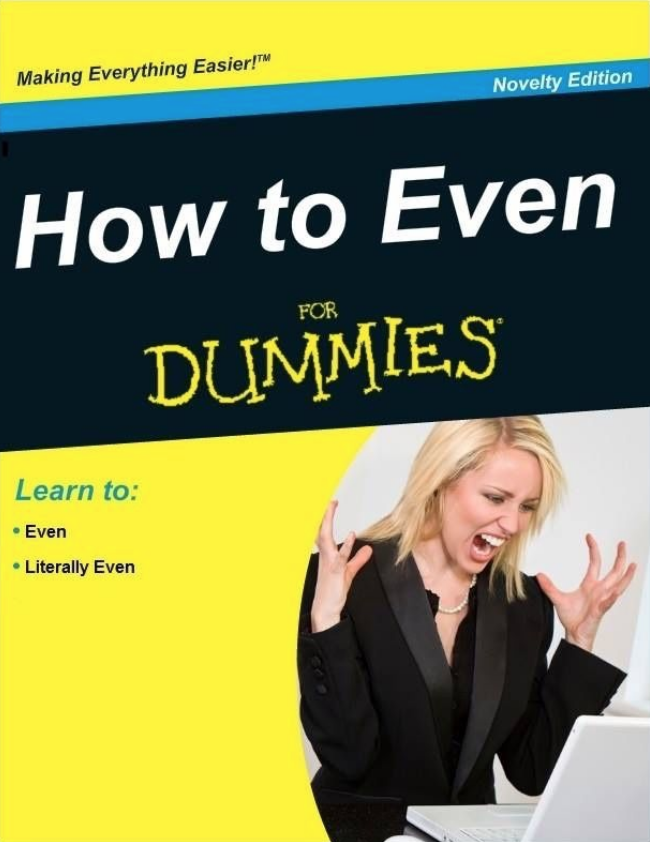
I knew what it felt like to live in a world where a woman wasn’t supposed to ‘outdo’ the men. I’ve been lectured plenty of times about ‘not knowing my place.’
Male family members constantly insinuated I couldn’t understand business even though I’d earned a degree in International Economics.
When I took the ASVAB for the Air Force, I scored 100% in mechanics and aced anything math-related. I’d just completed Honors Physics, because I had a strong interest in engineering.
Alas, the recruiters laughed when I asked about avionics because, ‘Didn’t I want to be a nurse?’
*sighs*
I spent most of my life in trouble with someone because I didn’t act a certain way. Like Cersei, I didn’t fit in, didn’t say the right things, act the right way, or have the right interests.
I didn’t understand WHY I was supposed to let ‘the men be in charge’ even when ‘the men’ weren’t competent.
That cost me a job…or four.
Characters: Mirror, Mirror on the Page
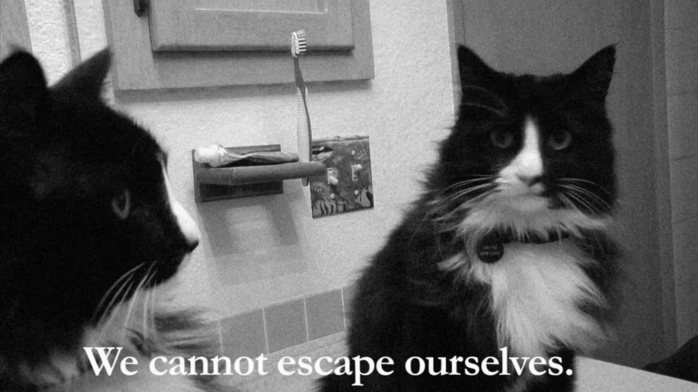
Great characters will act as a mirror for readers via the story problem(s) and how the characters interact with/respond to the world around them.
All stories are human stories, whether in space or in a magical realm. Characters (should) endure the same trauma and challenges that audiences do in life. This mirroring gives us (readers) a safe place to feel and process our emotions.
Going back to Cersei Lannister.
Cersei mirrored a lot of the frustrations I’d faced throughout my life, and this created a kinship that made me love her and forgive her even though she was utterly horrible.
I KNEW what it was like to be the best qualified person for the job, yet not even considered. I understood how frustrating it was to not be able to simply ASK for what I wanted or needed, to have to hint, suggest and ‘wheedle’ so I didn’t step on toes.
Manipulation is the tool/lever/weapon of those too weak to simply ask for/go after what they want.
I’m a very blunt person.
*shock face*
I know.
What you see is what you get. I suck at taking hints, so I don’t like hinting to others. If you need something? Ask. I’m aging here, and I don’t like wasting time guessing.
If I hurt your feelings? Tell me so I can apologize and make sure not to tromp on you again.
I despise manipulation. Yet, there was a time I had to learn how to ‘suggest’ and ‘hint’ if I wanted to get anything accomplished.
On top of all this? Like Cersie, I, too, have endured terrible consequences due to incompetent leadership, and been powerless to do anything about it for ONE REASON.
I was a female.
Characters & The Audience
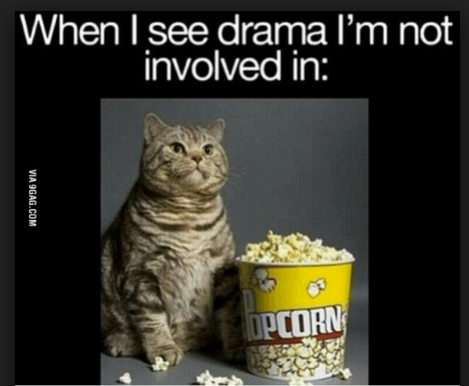
This said, plenty of people loathed Cersie from the get-go.
Just as I hated Robert Baratheon from the onset, because he reminded me of people who’ve caused me tremendous pain, Cersei Lannister could remind someone else of some tormentor in their life.
OR, it could be they didn’t share much in common.
THEIR life experiences, baggage, wounds, personalities made them bond to a different character that told ‘their story’ instead.
The skilled writer understands human narcissism. We are a self-absorbed bunch.
That’s why we long for stories where we can see a bit of ourselves reflected back. This is the danger with creating one-dimensional characters.
Newer writers, not yet skilled in the art of mischief and mayhem, tend to gravitate to the extremes. We have super-perfect characters pitted against utterly horrible villains.
Unfortunately, black-and-white is boring and predictable.
Superman Syndrome
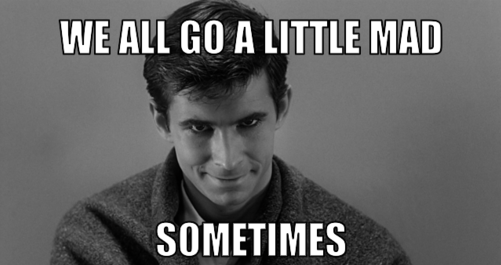
Superman, in my POV, is a Mary Sue. He has all these superpowers—strength, speed, he can fly, possesses x-ray vision, etc. Superman is also handsome, noble, kind, wholesome, and dedicated to his family. His ONLY weakness is Kryptonite.
And THIS is why he’s utterly boring.
Perfect characters with no weaknesses aren’t relatable. Conversely, ‘perfect’ villains who are wholly evil—with no redeeming qualities or sympathetic motivations—are caricatures.
Life isn’t black-and-white and neither are people. Good fiction appreciates this reality and understands audiences gravitate to the gray, because that’s where they live.
Black and white, good and bad make for predictable fiction. Audiences LOVE when stories (and characters) surprise them.
When we leave room for a ‘good guy’ to fall from grace, or a ‘bad guy’ to finally do the right thing, it keeps readers vested wondering what will happen next. Adding gray areas is what prevents writing from being ‘formulaic.’
When the audience can’t predict how the characters will act/react, they can’t predict what will happen next in the story, let alone know how it will end.
If you think back to the movies, books and series you’ve loved the most, I promise you’ll see that psychological wiggle room that allowed you to ‘slip into’ the story by forming your own opinions.
If you want to learn how to open that psychological seam, I recommend going back and rereading or rewatching the stories that hooked you the hardest and this time, take notes.
HOW did the writer(s) hook you? When? What drew you in? Read/or watch intentionally. Writing is NOT easy and great writing demands practice, study and TRAINING.
This is why I’m always creating and offering new classes!
And remember, a FREE recording comes with purchase in case you can’t make the live class and also so you can rewatch and study.
In fact, for characters, we have COMPLETELY NEW CLASS COMING UP!
First…
The Art of Character: Writing Characters for a SERIES
OCTOBER 1st! THIS COMING TUESDAY!
How do we create characters that readers will fall in love with, characters strong enough to go the distance? Find out in this THREE-HOUR class that also comes with detailed notes and a character-building template. Use Binge10 for $10 off.
This class dovetails with my previous class, Bring on the Binge: How to Plot and Write a Series (NowON DEMAND). Use Binge10 for $10 off.
Need some help with platform and branding?
Spilling the TEA: Blogging for Authors
THIS MONDAY, September 30th. Blogging is a powerful way to build an author brand and also make a great income doing what we love…writing. Use Tea10 for $10 off.
Branding: WHEN YOUR NAME ALONE Can Sell (ON DEMAND)
Use brand10 for $10 off.
Come join all the nerdy fun! See y’all in class!








6 comments
1 ping
Skip to comment form
Wow! I’m reading your post and thinking, Kristen has done it again — thrown everything on its head. This seems to fly in the face of how we’re taught to create a character (maybe even using the Myers–Briggs Type Indicator) who must always act a certain way because that’s his/her personality, and who can’t act in a surprising way because it won’t be believable. Then your post ending says to create characters who do act surprisingly so the readers don’t know what they’ll do next and can’t guess what will happen in your story. Given me a lot to think about. Thanks!
Author
They can surprise us, just careful they don’t go completely off the rails, LOL. But a good example would be Spike from “Buffy the Vampire Slayer.” Early on, Spike say refrained from going in for a kill when it would have been easy. The writers showed there was something in him not wholly evil, that he was capable of mercy or even doing the “right” thing under the right circumstances. His chaotic nature made him one of the most fascinating characters because there was wiggle room. He was unpredictable.
This reminds me of Beatrice in Much Ado About Nothing, infuriated by the rules of society that mean she can’t act to avenge the wrong done to her cousin. “O God, that I were a man! I would eat his heart in the market-place… I cannot be a man with wishing, therefore I will die a woman with grieving.”
As a reader, I don’t like characters who are either perfect or irredeemably evil, but nor do I like the kind of stories where everyone’s unpleasant in varying degrees. If everyone’s a jerk, why would I care who wins or loses? As you say, you’ve got to have someone you can relate to, even if that’s not the same person for every reader.
Spot on!
Great post! Insightful comments and I appreciate that you offer such relatable examples illustrating your points. The way you drill down into Cersei’s character brings your point across where more generalized advice would not.
It’s all in the subtext, baby. Subtext is my weak spot: I can “feel” it in writing, but I can’t duplicate it in my own. (You’d hate the stories I wrote in high school. The characters were there for one reason only: to give me catharsis. Not one inch of depth.) Still working out my story, but finally decided I really have to outline. That way I can see everything at once and plant seeds in the background that will blossom into subplots later on or totally take the plot in a different direction. Also, I’ll be able to control how the plot is shaped instead of writing myself into a corner. Wish me luck.
[…] Nathan Bransford urges us to let the reader diagnose your characters, Kristen Lamb examines the power of different characters to resonate with different readers, and Nathan returns to show how to create a great […]